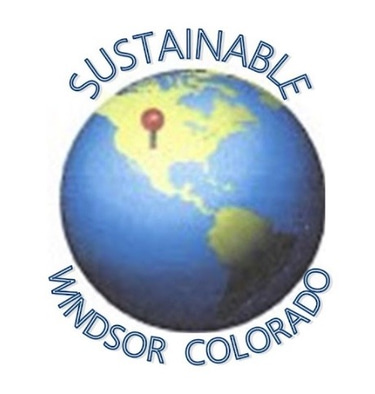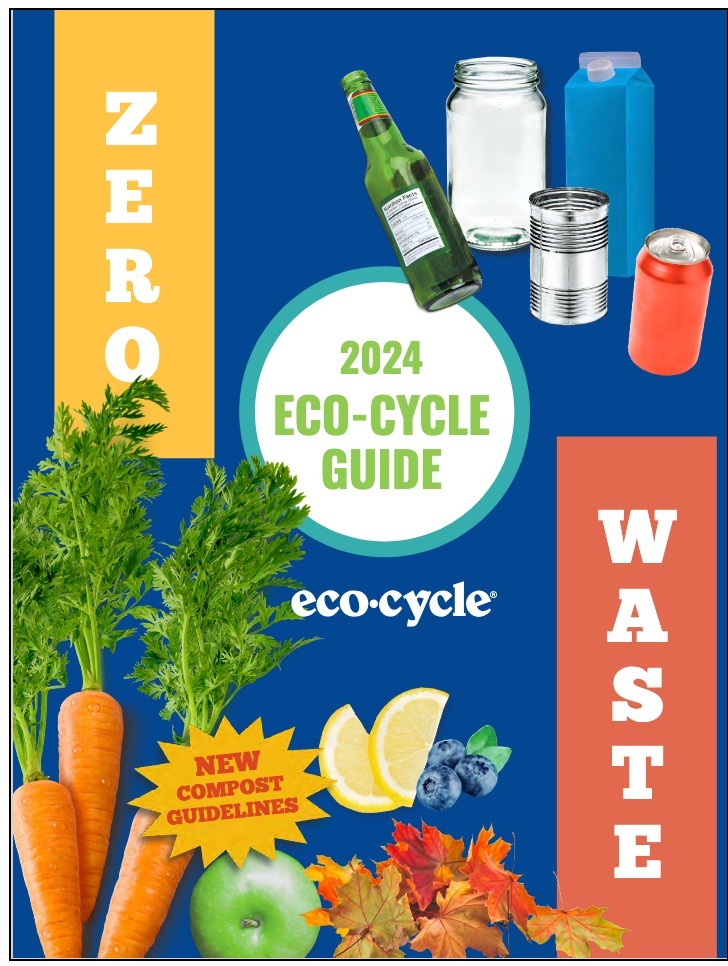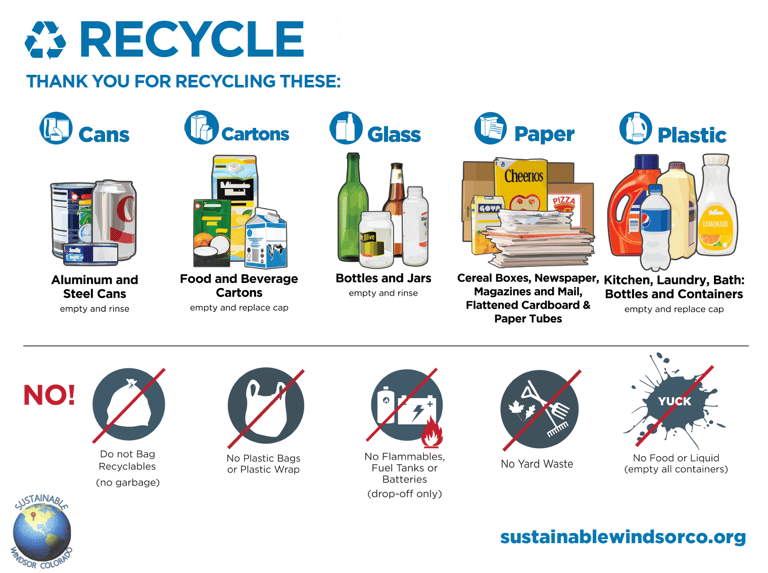SOLUTIONS
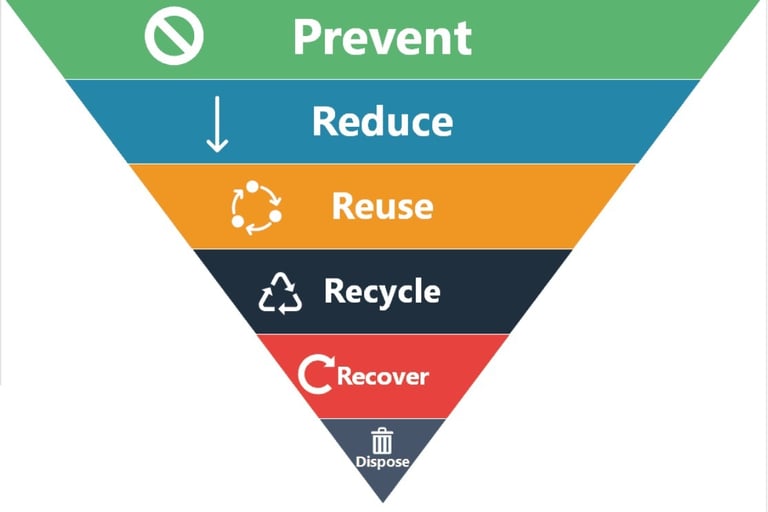

So first -- let's discuss trash in general. The fact is we continue to fill up landfills with our refuse. Many think that there are only two solutions for trash ... throw it or recycle it.
We need to also focus on review, reduce, reuse, and recover as part of our approach. In https://axil-is.com/blogs-articles/waste-management-hierarchy/, they provide the following overview:
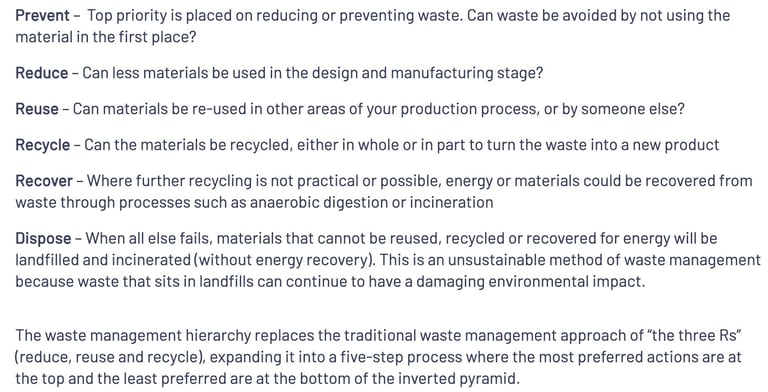

SO - let's use provide some examples ...
REVIEW - The latest smartphone was just released - ask yourself "Do you really need the new smartphone?"
REDUCE - You just saw some new clothes ... some are synthetic and some are cotton ... - ask yourself "Should I buy it in cotton because it is more sustainable in the long run?"
REUSE - The resteraunt provided the to-go food in plastic containers ... - ask yourself "Should I put them into recycle bin or should I use them for food storage?"
RECYCLE - If you have reached the decision to recycle ... great -- but -- ask yourself "Can this be recycled?" ... and we will be covering this for the rest of the module ...
The KEY Recycling Best Practices
So what are the Best Practices for Recycling. If you want to read a great piece on recycling -- click on the image for the 2024 Eco-Cycle Guide .... so much GREAT information!
There is a lot of literature out there -- and it is not clear -- this is discussed in https://theconversation.com/recycling-what-you-can-and-cant-recycle-and-why-its-so-confusing-206798 -- not part of the test -- but a good read if you have the time.
There is also a great video "Are You Recycling Correctly?" - which you can view here: https://rmpbs.pbslearningmedia.org/resource/why-should-we-recycle-video/things-explained/ -- again -- not part of the test ... but another great resource.
Bottom line - Recycling is easy -- just follow a few simple rules
Ensure containers are empty and clean
You can leave labels and lids on jars/bottles
You can leave tape/staples/mail in envelopes
Dispose of hazardous waste appropriately (do not put this into recycle or waste - this will almost certainly cause contamination)
Focus on the Waste Management Hierarchy (Reduce/Reuse/Recycle)
And ... follow the guidelines on what can and cannot be recycled below ....
What CAN be put into your Single Stream Recycling Bin
.... and what CANNOT
WHAT CAN BE THROWN INTO YOUR SINGLE STREAM RECYCLE BIN
Steel/Aluminum cans, foil, pans
Food and Beverage Cartons
Glass Bottles/Jars/Jugs
Paper to include cereal boxes, newspapers, mail, flattened cardboard, paper tubes
Plastic Bottle and Containers e.g. kitchen, laundry, bath products
Bins/Tubs/Containers
WHAT CANNOT BE RECYCLED
Plastic bags/plastic film *
Syringes/needles
Scrap metal
Food/Liquid Waste
Styrofoam
Straws
To-go cups eg Starbucks
Yard debris
Fluorescent lights
Batterries
Mirrors
Tarps
Tires
Shredded paper
Electronics
Clothes
Pyrex
Ceramics
Light bulbs
Wood
Rigid plastics
* Safeway and others provide recycling services for plastic bags
We put together the following graphic that shows the key principles of Recycling Simplified ...
We developed this based on materials and conversations with the local waste management companies. It conforms to the general guidelines by MOST providers.
If you click on the graphic, you can download a copy of this -- it would look great on your refrigerator .....
As you would expect -- the list of items that you CANNOT put into recycling is longer ...
But a picture makes this easier ....
You can find it at: https://drive.google.com/file/d/1bHJxBnSDCKdJ8rPUCmKp4fBKswlxuMS4
But ... what about plastics
Plastics are everywhere ... Unfortunately ;-(
Unlike aluminum or paper, plastics are not easily recyclable and we continue to add to our plastic waste every year.
https://www.plasticsoupfoundation.org/en/plastic-problem/plastic-soup/more-plastic-than-fish states that "Plastic production will increase by 40% in the next 10 years. If we don't do anything about the plastic soup, oceans will carry more plastic than fish (by weight) by 2050. The United Nations warns that marine life will be irreparably destroyed."
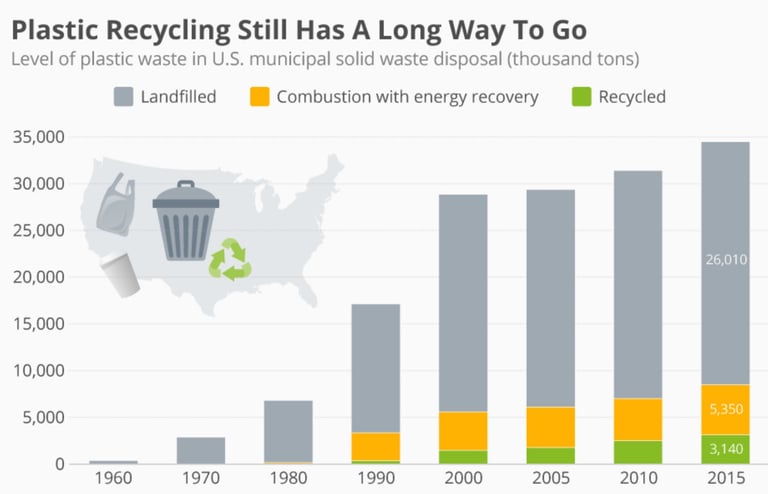

To continue the training - please click the SUMMARY/QUIZ button -- if you want to go back to the overview, click the CHALLENGES button below.
Worse yet - the plastics/petrochemical industry proposes the use of chemical pyrolysis and incineration as "recycling" methods. This is shown in the graphic above as "combustion with energy recovery". These methods are NOT recycling. They are simply destroying the plastic - and releasing huge amounts of toxins.
So - what should you do - the key point is that we ALL need to limit our use of plastics by substituting other products in their place (e.g. paper), eliminating the use of single use plastics (like the plastic bags in supermarkets). And if you do get something plastic - make sure it is either recyclable OR reusable. As an example, I have a box in the garage full of plastic bags. The other option is that some stores such as Safeway provide the ability to recycle plastic bags - however this is likely via pyrolysis.
Please try to limit your use of plastic - our planet will thank you for that ;-)
